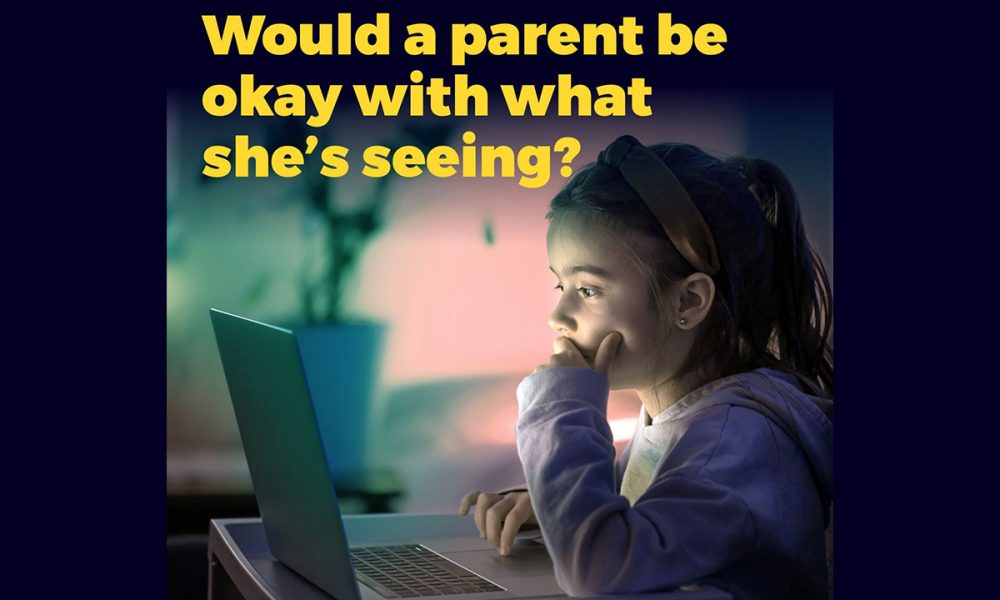

Compliance Updates
Bragg’s ORYX Gaming Awarded License in Greece
License to supply in Greek market extends Bragg’s regulated market reach
Bragg Gaming Group announced today that its wholly-owned subsidiary ORYX Gaming (“ORYX”) has been granted a license to supply its exclusive content via its proprietary remote games server to operators in Greece by the Hellenic Gaming Commission.
ORYX is now live and fully compliant in the jurisdiction, which has moved from an interim framework to become fully regulated, in line with a general trend among European countries in recent years.
The A1 license enables ORYX to supply its Greek licensed customers including OPAP, Stoiximan, Betsson and NetBet, with more online casino brands expected to go live in the market via the Company’s ORYX Hub distribution platform this year.
Chris Looney, Chief Commercial Officer at Bragg said: “Greece has the potential to become an important market for the group and this license underpins our commitment to our customers in the jurisdiction and represents a new milestone for us in our plans for expansion in regulated markets in Europe, North America and globally.
“Our technology is flexible, and it gives us the agility to adapt quickly to new market regulations, and we look forward to launching in many more new markets over the coming quarters with our in-house developed content, our player engagement tools and exclusive third-party content.
“We have a superb new roadmap of exclusive games coming up, including an increasing proportion from our own in-house studios, and we can’t wait to bring them to Greek slots fans.”
ORYX is already licensed in Malta and Romania, and is otherwise certified or approved to offer its content in multiple jurisdictions including Sweden, Denmark, Spain, Portugal, Czech Republic, Croatia, Serbia, Switzerland, Gibraltar, Estonia, Latvia, Colombia and, once the market opens as anticipated in Q4 2021, the Netherlands. It is in the process of obtaining further licenses in the UK, Belgium and in the U.S. states of New Jersey, Pennsylvania and Michigan, and is in the process of obtaining certification to supply in Italy.
Australia
BMM Testlabs Brings Global Compliance Expertise to Australasian Gaming Expo in Sydney This Week

BMM Testlabs, the world’s original gaming test lab and product certification consultancy, today announced that it is exhibiting at the Australasian Gaming Expo (AGE) this week, August 12-14, at the ICC Sydney.
BMM will welcome attendees at Stand No. 331 to showcase its industry-leading suite of product compliance testing services, quality assurance testing services, and cybersecurity protection solutions tailored to the Australasian gaming market.
With over four decades of global expertise and strong roots founded in Australia, BMM continues to deliver local insight with global reach, supporting suppliers with land-based and digital product compliance solutions
BMM’s President of Land-Based Gaming & Inspections Kirk White said, “At BMM, we’re proud to combine local knowledge with global strength. Our Australasian teams understand the unique regulatory and market challenges across the region, and we work closely to deliver testing and certification services that go beyond compliance; we help power suppliers’ growth and protect their brand.”
White added, “There’s a reason we are the No. 1 lab in Australia and Asia. We were founded in Australia and have been a resource to the region’s suppliers, operators, and regulators for over 44 years. We have played an important role in Australasia’s growth in its established land-based markets, evolving digital markets, and emerging new markets like the Philippines, Thailand, Vietnam, Cambodia, and India.”
BMM’s experienced teams across Australasia, with offices in Melbourne and Sydney, Australia, as well as Macau, Singapore, and India, are the trusted testing partner of choice in this expansive region. The Company’s expertise spans land-based platforms, games, and systems; lottery testing; and the full spectrum of digital gaming, including iGaming, sports betting, iLottery, and mobile.
The post BMM Testlabs Brings Global Compliance Expertise to Australasian Gaming Expo in Sydney This Week appeared first on European Gaming Industry News.
AU10TIX
AU10TIX Launches Free Assessment Tool and Readiness Guide to Help Organizations Navigate Child Safety Age Assurance Compliance

AU10TIX, a global leader in identity verification and fraud prevention, announced the launch of a free Child Safety Age Assurance Risk and Readiness Assessment and Age Assurance Readiness Guide designed to help businesses better understand their risk and tailor their strategy to meet regulatory obligations. They support AU10TIX’s Selfie-based Age Estimation service, which delivers the industry’s most precise and unbiased age assessment in just two seconds.
In the US, federal legislation such as the Children’s Online Privacy Protection Act (COPPA) requires parental consent for users under 13, while the California Consumer Privacy Act (CCPA) mandates age verification for websites accessed by users under 16. Additionally, 19 U.S. states now enforce mandatory age checks for adult content and gambling platforms. Similar regulations are impacting social media and online services in the UK, EU, and Australia.
AU10TIX’s free Child Safety Age Assurance Risk and Readiness Assessment consists of six short questions about an organization’s sector, security measures, and ID verification processes. Upon completion, participants receive a customized Risk Assessment Report outlining key vulnerabilities and practical recommendations for improving compliance. They also receive a comprehensive 13-page Age Assurance Readiness Guide to help them navigate the complex landscape of age verification regulations.
“As age-based regulations expand globally, businesses are actively seeking guidance on how to balance security, compliance, and user convenience. Our new Risk and Readiness Assessment helps organizations identify their unique risks and stay compliant without compromising the customer experience. This perfectly complements our Selfie-based Age Estimation solution, which adds an extra layer of protection to help ensure safe use of our platform by minors,” said Yair Tal, CEO of AU10TIX.
AU10TIX also offers a Selfie-based Age Estimation solution that leverages advanced AI-driven biometric technology to analyze facial features and estimate age without the need for a government-issued ID. It streamlines the experience by requiring only a selfie, cutting verification time to two seconds while delivering the industry’s most accurate age estimates. It simultaneously conducts a liveness check and analyzes the selfie using AI models trained on millions of biometric data points, which accurately estimate age without storing any personal data. By reducing the need for full ID verification, this approach can reduce costs by up to 10x and boost completion rates by 27%.
The post AU10TIX Launches Free Assessment Tool and Readiness Guide to Help Organizations Navigate Child Safety Age Assurance Compliance appeared first on Gaming and Gambling Industry in the Americas.
Compliance Updates
GeoLocs and Shufti Join Forces to Streamline Player Onboarding and Compliance

GeoLocs, the specialist geolocation platform for the iGaming, Sports Betting and iLottery industries, has partnered with identity verification provider Shufti to deliver a seamless and secure user experience for both operators and players in regulated markets worldwide.
The integration of GeoLocs’ precise geolocation technology with Shufti’s robust identity verification solutions allows operators to onboard players faster while maintaining full compliance with local regulations. The partnership reduces friction in the registration and verification process, enabling a smoother journey from sign-up to gameplay.
Will Whitehead, Commercial Director at GeoLocs, commented: “We’re excited to be working with Shufti to bring a more seamless, secure experience to clients and players alike. Both of our technologies have been built with compliance and UX at their core, and this partnership allows us to combine strengths—making onboarding and verification faster, smoother, and more robust for operators in regulated markets.”
With regulatory frameworks tightening in both emerging and established jurisdictions, the collaboration ensures that operators have access to integrated tools that deliver high standards of security, compliance, and user experience.
Roger Redfearn-Tyrzyk, SVP of Sales at Shufti, added: “We’re proud to be teaming up with GeoLocs to support operators in delivering frictionless onboarding and a high level of regulatory compliance. Our joint capabilities mean operators can verify users quickly and accurately while GeoLocs ensures they are playing from permitted locations—creating an end-to-end experience that puts both security and user satisfaction first.”
This partnership underscores both companies’ commitment to innovation and player-centric technology in the fast-evolving iGaming space.
The post GeoLocs and Shufti Join Forces to Streamline Player Onboarding and Compliance appeared first on European Gaming Industry News.
-

 gaming3 years ago
gaming3 years agoODIN by 4Players: Immersive, state-of-the-art in-game audio launches into the next generation of gaming
-
EEG iGaming Directory8 years ago
iSoftBet continues to grow with new release Forest Mania
-
News7 years ago
Softbroke collaborates with Asia Live Tech for the expansion of the service line in the igaming market
-
News7 years ago
Super Bowl LIII: NFL Fans Can Bet on the #1 Sportsbook Review Site Betting-Super-Bowl.com, Providing Free Unbiased and Trusted News, Picks and Predictions
-
iGaming Industry8 years ago
Rick Meitzler appointed to the Indian Gaming Magazine Advisory Board for 2018
-
News7 years ago
REVEALED: Top eSports players set to earn $3.2 million in 2019
-
iGaming Industry8 years ago
French Senator raises Loot Boxes to France’s Gambling Regulator
-
News7 years ago
Exclusive Interview with Miklos Handa (Founder of the email marketing solutions, “MailMike.net”), speaker at Vienna International Gaming Expo 2018








